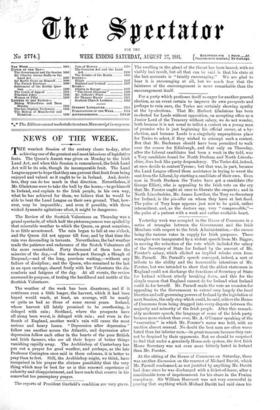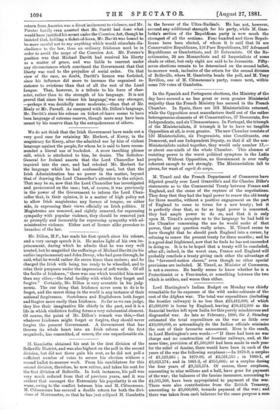At the sitting of the House of Commons on Saturday,
there was another discussion on the rearrest of Michael Davitt, which Mr. Parnell condemned, as not justified by anything Mr. Davitt had done since he was discharged with a ticket-of-leave, after a considerable term of imprisonment for his share in the Fenian conspiracy. Sir William Harcourt was not very successful in proving that anything which Michael Davitt had said since his
return from America was a direct incitement to violence, and Mr. Forster hardly even asserted that Mr. Devitt had done what would have justified his arrest under the Coercion Act, though he insisted that, holding a ticket-of-leave, Mr. Davitt was bound to be more careful not to say anything which would stimulate dis- obedience to the law, than an ordinary Irishman need be in order to avoid the scope of the Coercion Act. Mr. Forster's position was that Michael Davitt had received his liberty as a matter of grace, and was liable to rearrest under any circumstances which convinced the Government that that liberty was used to the prejudice of social order. On that view of the case, no doubt, Davitt's licence was forfeited, since his influence did more to increase the organised re- sistance to evictions than that of all the rest of the Land League. That, however, is a tribute to his force of char- acter, rather than to the strength of his language. It is not proved that since his release his language, was any stronger, —perhaps it was decidedly more moderate,—than that of Mr. Healy or Mr. Parnell. As compared with Mr. Dillon's language, Mr. Davitt's since his release on ticket-of-leave seems to have been language of extreme reserve, though more may have been meant by his reserve than by the outspokenness of others.































